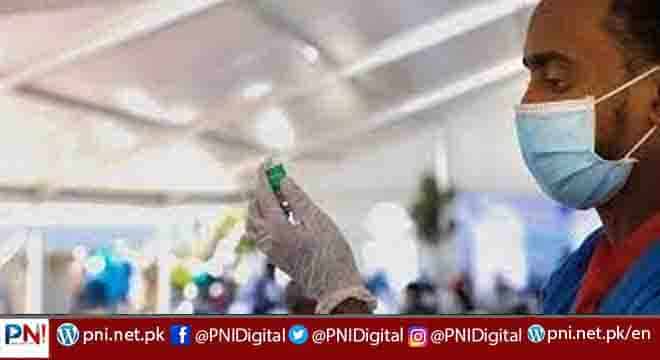UNITED NATIONS, Feb 27 (APP): Pakistan, in its capacity as Chairman of the developing countries Group of 77, has called for ensuring vaccine equity to defeat the corona virus pandemic globally, highlighting the fact that while two in three people in rich countries have already been vaccinated, only one in eight received vaccination in poor countries.
“Universal access to safe, effective, equitable, and affordable vaccines is the most immediate way to end the pandemic, support economic recovery and progress towards the Sustainable Development Goals (SDGs),” Ambassador Mohammad Aamir Khan, deputy permanent representative of Pakistan to the UN, told a high-level event, convened by the General Assembly President, Abdulla Shahid, aimed at ‘Galvanizing Momentum for Universal Vaccination’.
Over 100 speakers are participated in the discussions.
“We need decisive actions for a global plan to ensure ‘vaccines for all’,” Ambassador Aamir Khan said.
He said the Group of 77 believes that following elements are required for such a global plan:
1) Cooperation needed to massively expand manufacturing capacity particularly in low and middle-income countries;
2) Sharing of technology and information for the detection, prevention, treatment, and control of the pandemic and for vaccine production is essential, with access to health technologies for COVID-19;
3) Options to help increase production in developing countries should include voluntary licensing, technology pools and platforms;
4) The COVAX facility and the ACT accelerator should be supported and funded;
5) Excess stocks of vaccines, held by some countries, should be donated, and distributed equitably as soon as possible;
6) New and additional finance and capacity-building from all sources needed to ensure that developing countries are prepared to vaccinate their people, including persons in vulnerable situations such as women, children and youth, elderly persons, people with disabilities.
7) More funds and capacity-building from all sources required to ensure that developing countries are prepared to vaccinate their health and care workers;
8) Strengthen health systems and advance universal health coverage to enable countries become more resilient against future pandemics, and,
9) Education, training, and reliable communication needed to build trust in vaccines.
“While it is inspiring that we have been able to produce vaccines in record time; it is regretted that the advances of science and technology are lost to vaccine inequity,” Ambassador Aamir Khan said, while stressing the need to push for making vaccines for all.”
Follow the PNI Facebook page for the latest news and updates.









